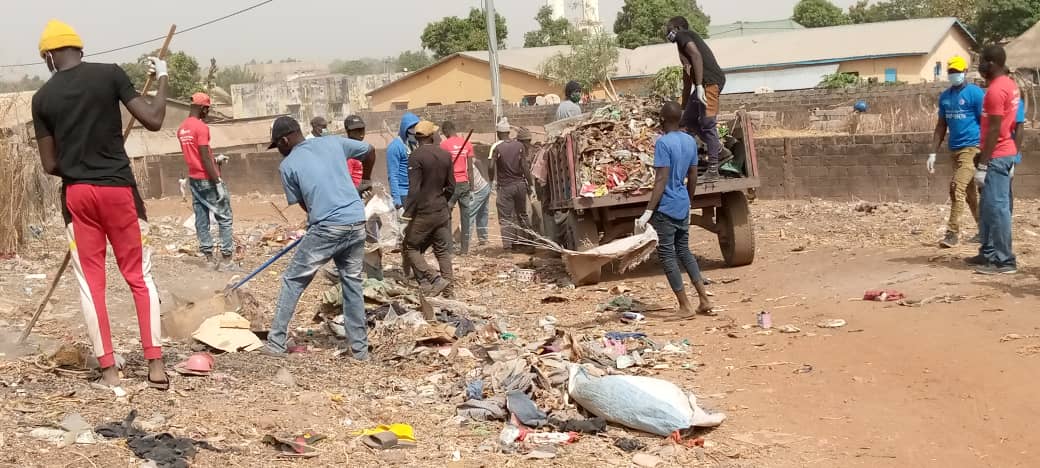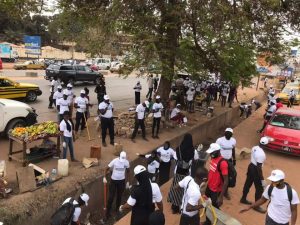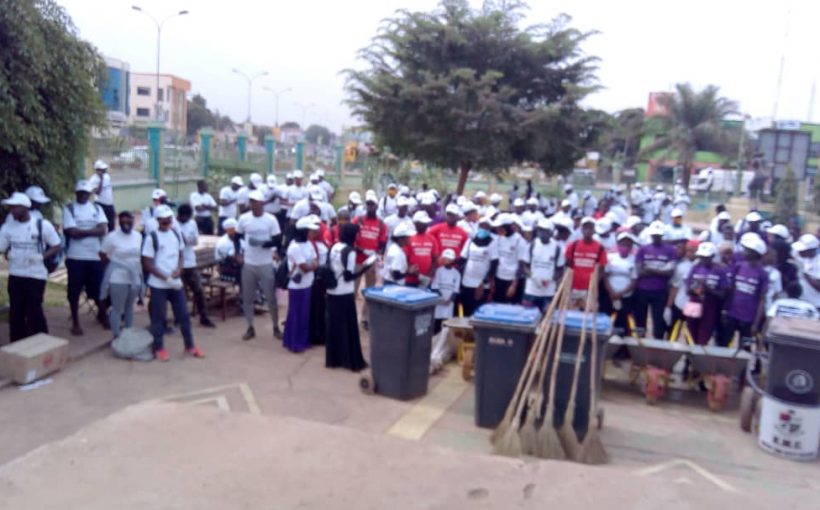
By: Alieu Jallow
March 21, 2021
Please tell us your full name?
Dr. Nfamara K. Dampha,
Could you tell us the location of your network and why such a network?
Officially headquarter is located in Brusubi Turntable.
Please share with us the situation of waste and waste management in Gambia?
The Gambia’s waste management conditions are highly in adequate from industrial, municipal to household generated waste be it solid or liquid. Waste generation is inevitable in modern society, but lack of proper waste management is highly unacceptable given the environmental pollution and economic costs. Waste is a byproduct of economic, household, and industrial activities. Wastes from various sources, including point and non–point sources, are highly produced in our metropolitan areas, particularly within the Kanifing Municipality (KM) and the West Coast Region(WCR). For example, in 2015, households in the KM generated an estimated 65,690 tons of solid waste on average, slightly less than the average household generated in the WCR (65,157 tons). The higher the economic and industrial activities in an area, the more solid and liquid waste we produce as homo sapiens. The common types of waste in the Gambia and many developing countries are plastics, papers, organic materials, and other non biodegradable products such as metals, aluminum cans, toxic chemicals, paints, tires, and glass.
According to NEA, households in the Gambia generated 193,771 tons of solid waste in 2015 (Fatty & Komma, 2019). One of the challenges of proper waste management in the Gambia are; lack of enforcement of environmental laws and regulations, bribery and corruption, attitudinal and behavioral deficiencies, limited public awareness of the ecological impacts of land, water, and air pollution caused by indiscriminate dumping of waste and trash on the street and at public areas.
Please tell us your motivation to environmental protection through waste management?
HELP–Gambia is motivated to address the above mentioned challenges through (a) implementing action–oriented projects at the municipal, neighborhood, and household levels, (b) conducting scientific research on the environmental, health,social, and economic impacts of waste/pollution to inform public policy, (c) advocating for the enforcement of environmental laws and regulations, (d) and creating public awareness on the impacts of environmental and industrial hazards to reduce their vulnerability, exposure, and risk levels.
Any challenges experience since inception of your activities and what are your mitigation methods?
Our biggest challenges as an NGO include lack of funding to scale–up our activities and projects, compounded with severe mobility constraints for our staff to deliver projects in the rural Gambia. We are soliciting support and partnership from various institutions, including public, private, international, bilateral, and multilateral donors. With project–based financing, we would accelerate efforts to meet our targets stipulated in our Vision 2050 Master plan.
Any achievements so far and how has that changed waste management in this country if any?
HELP–Gambia has been implementing four(4) different types of environmental clean–up projects to reduce our waste footprint.
Firstly, we have organized various Neighborhood Clean–up Exercises held in both the urban and rural areas of The Gambia. Secondly, we host the annual World Clean–up Day events every September in all regions of the country. Thirdly, we successfully organized both local and international volunteers to participate in our first GAM–Diaspora Clean–up Day, held on January23, 2021. This exciting annual event will continue to attract both Gambians, including our diaspora–based fellows,and non–Gambians to participate in our environmental clean–up events. Finally, we are about to kick–off our flagship National Trash–free:Operation 500 Volunteers project,which will be implemented in all 7 administrative regions. It’s important to emphasize that HELP–Gambia uses a multi–stakeholder partnership approaching planning and executing all its projects, particularly our waster education projects. Our key partners so far include government agencies(e.g., NDMA, GAFNA), area councils(e.g., KMC, BAC), private sector entities(Africell & Media houses), and many other civil society organizations.
Share with us your goals as a waste management network?
Our waste management goal is to reduce waste/ trash levels on streets and in public spaces by 50% by 2030and 90% by 2050 relative to 2020
T ell us some of services that you offer to Gambians?
ell us some of services that you offer to Gambians?
HELP–Gambia is about to roll–out a sustainable climate–smart initiative called Green Event Planners(GEP–Gambia). The GEP–Gambia project aims at reducing the environmental footprint/pollution of all social, cultural, and political events(e.g., ceremonies, conferences, rallies, festivals, parties). GEP–Gambia offers the following services and products for all these events if our service is requested. Waste collection & proper disposal. Drone photography & video-graphy event set–up & decorations. Use of biodegradable products . Public awareness about 3Rs (reduce, reuse, and recycle) in waste management.
Any final words?
We call for a waste–free society and count all our citizens and institutions to support our efforts and contribute their parts. Together, we can! We once again appreciate your time. Thank you

